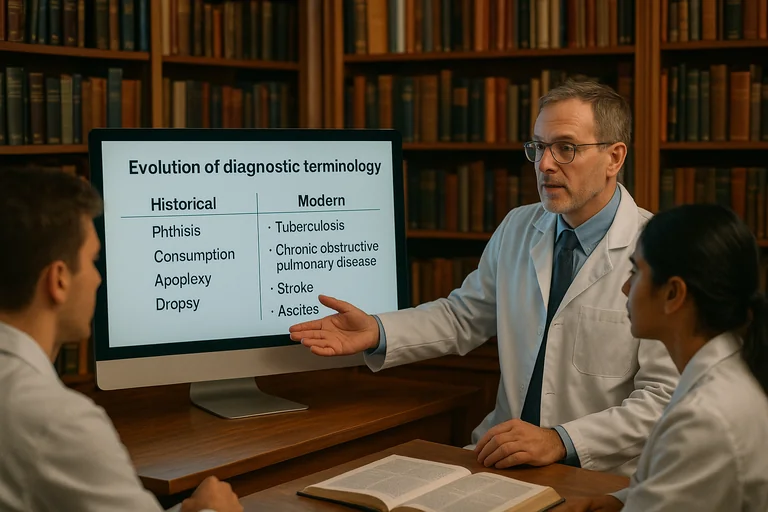A 2 minute assessment to get a personalized mental health or alcohol recovery plan.
Think "wet brain" is just slang for being drunk? This irreversible condition destroys memory permanently - and 80% of cases go undiagnosed until it's too late.
What You'll Discover:
- Why "wet brain" is actually a medical emergency that causes permanent brain damage.
- The two-stage progression that determines if you'll recover or be disabled forever.
- How vitamin deficiency, not just alcohol, destroys specific brain regions.
- Warning signs that mean you need immediate medical attention.
You've probably heard the term "wet brain" used casually, maybe in a movie or as a crude joke about heavy drinking. But behind this colloquial expression lies a devastating medical reality that affects thousands of people struggling with alcohol use disorder. The casual use of this term often masks the serious, life-threatening nature of the condition it describes.
Or at least, that's what people assume - that it's just another way to describe being really drunk. In actuality, wet brain is the street name for Wernicke-Korsakoff syndrome, a condition that literally destroys parts of your brain permanently. The National Institute on Alcohol Abuse and Alcoholism estimates 80% of cases remain undiagnosed until irreversible damage occurs. After all, who takes "wet brain" seriously as a medical emergency? But in actuality, more recent understanding shows this condition causes brain damage as severe as traumatic injury or stroke.
It may be time to understand what wet brain really means if you or someone you know drinks heavily and shows any confusion or coordination problems.
The Medical Reality Behind This Crude Slang Term
Don't let the casual nickname fool you into thinking wet brain is just severe intoxication. The medical definition reveals a devastating neurological catastrophe.
Many researchers, neurologists and addiction specialists will tell you that wet brain - properly called Wernicke-Korsakoff syndrome - destroys specific brain regions responsible for memory and basic function. The NIAAA defines it as a serious brain condition usually associated with chronic alcohol misuse. Even if someone stops drinking completely, the damage often remains. It's particularly tragic because it's entirely preventable with proper medical care. For example, someone who's been drinking heavily for years could develop it within weeks if their nutrition crashes.
Now that you have a better idea wet brain isn't just being drunk, let's delve further into how this nightmare unfolds in two distinct stages, some of which may be very surprising.
The Two-Stage Disaster: Your Last Chance vs. Game Over
The undeniable truth is that wet brain progresses through two stages - and catching it in the first stage is literally the difference between recovery and permanent disability. There's Wernicke encephalopathy (the acute, reversible phase), then Korsakoff syndrome (the chronic, permanent phase).
Wernicke Encephalopathy: The Emergency Phase
This is one of the major medical emergencies people miss. The Cleveland Clinic describes it as requiring immediate treatment due to acute brain inflammation. The NIAAA confirms this phase can be reversed if detected and treated promptly. Symptoms include:
- Severe confusion and disorientation
- Abnormal eye movements or double vision
- Loss of muscle coordination
- Difficulty walking or standing
- Dangerous drops in body temperature
Korsakoff Syndrome: The Point of No Return
Although Wernicke's can be reversed, once it progresses to Korsakoff syndrome, the damage is usually permanent. The Cleveland Clinic warns that people invent information to cover memory loss without realizing they're doing it. But here's what's terrifying - they genuinely believe their false memories. The chronic phase includes:
- Complete inability to form new memories
- Severe retrograde amnesia
- Confabulation (unconsciously making up stories)
- Hallucinations
- Permanent need for institutional care
Worried someone you know is showing these signs? Every hour of delay increases the risk of permanent damage.
The Hidden Vitamin Deficiency That Destroys Your Brain
Now with understanding the two stages, the actual cause becomes crucial. But more importantly, it's not just "drinking too much" - it's thiamine (vitamin B1) deficiency.
What's most concerning about wet brain is how alcohol creates the perfect storm for thiamine depletion. Alcohol blocks thiamine absorption in your gut. Essentially, even if you eat foods with B1, your body can't use it. That is why heavy drinkers can develop wet brain even with decent diets.
This is obvious when you understand the mechanism, but most people don't realize the danger. Alcohol increases your body's thiamine requirements while simultaneously preventing absorption and depleting storage. The liver can't store thiamine properly when processing alcohol constantly. It will happen faster if you're not eating well.
The takeaway is that chronic drinking creates severe thiamine deficiency that literally starves your brain cells to death.
The good news is that IV thiamine can reverse early-stage damage, but only if given quickly.
Which Parts of Your Brain Get Destroyed
Clearly, wet brain doesn't affect your whole brain equally. But understanding which regions die reveals why the symptoms are so devastating.
In addition to general confusion, specific brain areas suffer targeted destruction. The NIAAA identifies damage to the thalamus, hippocampus, hypothalamus, and cerebellum.
Let's look at what this means practically. Imagine your hippocampus - responsible for forming memories - dying. You literally cannot create new memories. Every conversation, every moment disappears instantly. Your thalamus damage causes profound confusion. Hypothalamus destruction affects body temperature, heart rate, blood pressure.
Another key consideration is cerebellar damage causing permanent coordination problems. You might never walk normally again. Balance becomes impossible. Simple movements require enormous effort.
NEED TO KNOW: These brain regions don't regenerate. Once dead, they're gone forever. Early treatment is the only way to prevent permanent damage.
Warning Signs That Should Send You to the ER Immediately
If you notice these symptoms in yourself or someone who drinks heavily, treat it as a medical emergency equivalent to stroke symptoms.
Eye problems are often the first red flag - not just blurry vision but bizarre eye movements. Eyes moving involuntarily, unable to track objects, drooping eyelids. These indicate brain stem damage beginning.
Balance problems beyond normal intoxication - unable to walk even when sober. Appearing drunk without drinking recently. Stumbling, swaying, needing support to stand.
Confusion that seems extreme for the situation. Not recognizing familiar people, not knowing where they are, making up elaborate stories without realizing it.
Temperature regulation failing - feeling freezing in normal rooms, hypothermia without cold exposure. This can be life-threatening on its own.
But here's what's critical: the Cleveland Clinic notes confusion makes it difficult for them to seek treatment. Someone with wet brain might not realize they need help.
Why Early Treatment Is Everything
The difference between treating wet brain in hours versus days can determine whether someone recovers fully or needs lifelong care.
The NIAAA emphasizes that without treatment, WK syndrome can be disabling, produce permanent memory loss, and be life-threatening. Treatment requires high-dose IV thiamine immediately - not vitamins from the drugstore.
Timing is absolutely critical. Hours matter. Once progression to Korsakoff syndrome occurs, even aggressive treatment can't reverse the damage. People end up in nursing homes at 40, unable to remember their children's names.
The Alcohol and Alcoholism journal found that delayed diagnosis is the primary factor in poor outcomes. Many doctors miss early signs, thinking it's just intoxication or withdrawal.
Understanding how long alcohol withdrawal lasts helps distinguish between normal withdrawal and wet brain symptoms requiring emergency care.
Terrified about wet brain risk from your drinking or someone you love?
If you're worried about developing wet brain, if someone you know shows these symptoms, or if you want to stop drinking before irreversible damage occurs, immediate action is critical. Choose Your Horizon offers 100% online assessment and treatment to help you quit drinking safely.
Don't wait until confusion or coordination problems appear. Take the online Alcohol Use Assessment to understand your risk and get connected with medical support before wet brain becomes a possibility.




